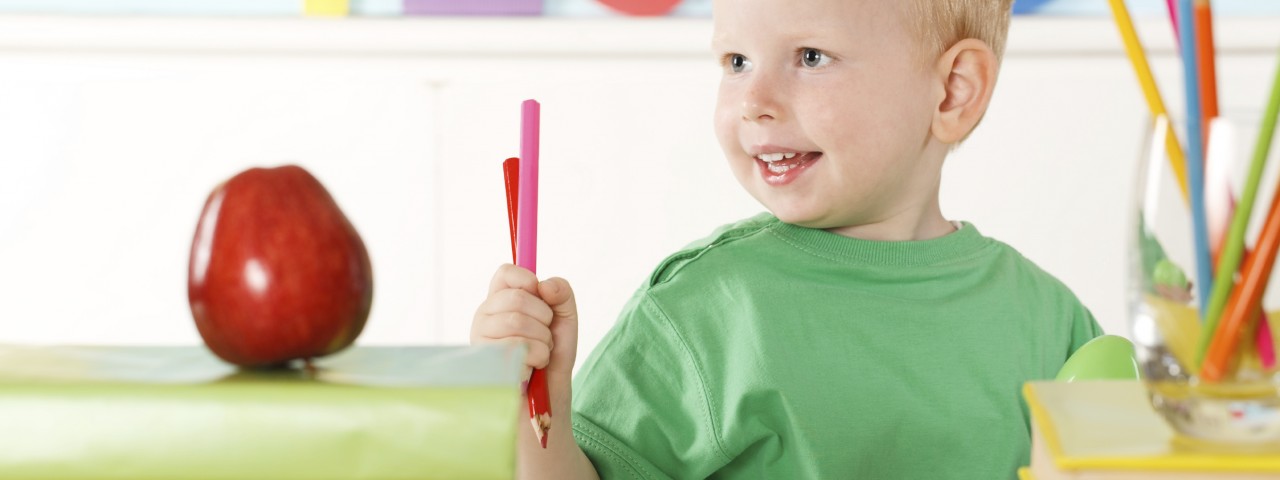6 Steps to Get Your Family Ready for Kindergarten
- Tweet

What does it mean to be a kindergarten ready household? There are a few simple steps that you can take to ensure that your student starts kindergarten on the right foot and continues to thrive during the school year.
1. Get Familiar with Your School
The first step in preparing your child and your home for kindergarten is to get familiar with your school. What parks and recreation centers are nearby? Who is your school's principal? Who is your child's teacher? Who are your child's classmates? By becoming familiar with your school, its people, and its surroundings, you can make sure you make contacts with important people in your child's new life as a kindergartener as well as explore other advantages of the school based on its location.
2. Start Your Routine Early
Beginning kindergarten is an important step for any family, but it is also a big change. That's why it is imperative to start your routine early. Your child starting kindergarten will mean setting a bedtime and a wake up time as well as putting together a regular morning routine. Starting these routines early, before the first day of school, will allow your child and your family to ease into the some times difficult transition to kindergarten.
3. Set "At Home" Ground Rules
In addition to starting routines in your household around daily and nightly routines, set some "at home" ground rules for your child regarding homework, chores, TV and video games. By allowing your child to help you put together a schedule that works for your family, you can avoid confrontation later. Also discuss with your child how ground rules may be different at school from those at home, for example, raising your hand to speak opposed to speaking out.
4. Designate A Workspace
Every kindergarten household should have a space in which a child can complete his or her homework. Designate a workspace for your kindergartener stocked with essentials, like sharpened pencils, pens, and paper. Also, furnish your child's workspace with a lamp and a comfortable chair where your student can work quietly on assignments during homework time. If you have older school-aged children who will share the workplace with your kindergartener, consider stocking the workplace with easily accessible resource materials, like a dictionary and a thesaurus.
5. Encourage Your Child to Ask Questions
Besides setting up your child for kindergarten success with strong routines and rules, you should also prep your child for the rigors of kindergarten by encouraging your child to ask questions. By encouraging your new kindergartener to ask questions about things they don't understand, you will give your child the confidence they need to ask questions in class. Another important result of encouraging your child to ask questions at home is that you are encouraging learning to take place at home. By making opportunities for your child to learn in a non-school setting, you are setting your child up to be a lifelong learner.
6. Teach the Importance of Sharing and Listening
The last step in preparing your child and your home for kindergarten is to teach the importance of both sharing and listening. These two skills are integral to your child's success throughout life. Giving your child many opportunities to practice sharing and taking turns will give your kindergartener a head start when entering the classroom in terms of working with peers. Listening is an equally important skill; children should have multiple opportunities to practice how to listen effectively before entering the kindergarten classroom. Practice listening skills by encouraging your child to look at who is talking, not interrupt the speaker, and think about what is being said.
Throughout the school year, continue to adhere to your daily routines as well as your home "ground rules" concerning homework and leisure time. Seize every experience and turn it into a teaching moment, while encouraging your child to inquire about the world. Every day encourage your child to listen to others, interact with peers effectively, and resolve conflicts in an appropriate way. By following these steps, your child and your family will be set up for kindergarten success.
For more helpful resources, please refer to the links below.
